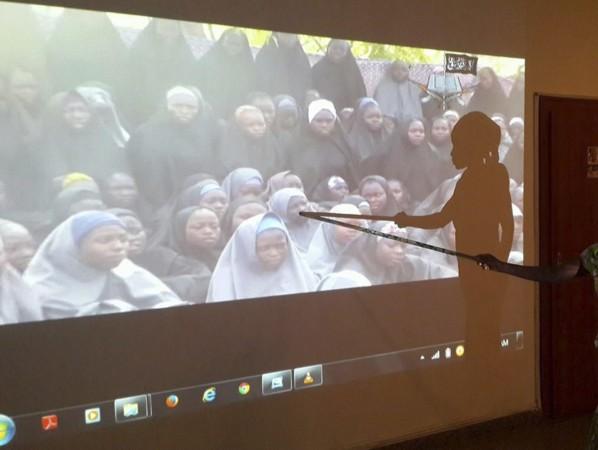
Nigerian military on Friday announced that the Islamist militant group Boko Haram has agreed to a ceasefire and to release the 219 schoolgirls the group has abducted– an incident that tended to ease months long tension in the war-torn country.
Nigeria's defence staff chief, Alex Badeh, announced regarding the truce, although the militant group has not made any public statement.
The notorious group sparked global outrage six months ago by abducting the schoolgirls, most of them Christians. The young girls were captured in the north-eastern town of Chibok in Borno state. The incident snowballed into a major international issue and the Nigerian government was criticised for their efforts to secure the girls.
Members of 'Bring Back Our Girls' campaign said in a tweet on Friday: "We are monitoring the news with huge expectations."
The highest-ranking military official of the country, Badeh, announced the truce on Friday, referring to Boko Haram by its formal Arabic name. He urged country's military chiefs to abide by the conditions of the truce.
"I wish to inform this audience that a cease-fire agreement has been concluded between the federal government of Nigeria and al-Sunna lil-Da'awah wa al-Jihad," Badeh told in a briefing.
The Nigerian presidential aide Hassan Tukur told the BBC Focus on Africa that the truce agreement was sealed after a month of negotiations. A government delegation met representatives of the jihadist group twice, as a part of the talks.
Tukur further added that Boko Haram had announced a unilateral ceasefire on Thursday and the government had responded to it.
"They've assured us they have the girls and they will release them...I am cautiously optimistic," he said, adding that arrangements for their release will be finalised next week during another meet scheduled to be held in Chad's capital, Ndjamena.
Earlier this year, President Goodluck Johathan imposed a state of emergency in the northern states of Borno, Yobe and Adamawa, and promised to crush the militant group. But the Islamist group, which believes that it was 'haram' or forbidden for Muslims to take part in any political or social activity associated with Western society - has increased its attacks over the months.
















